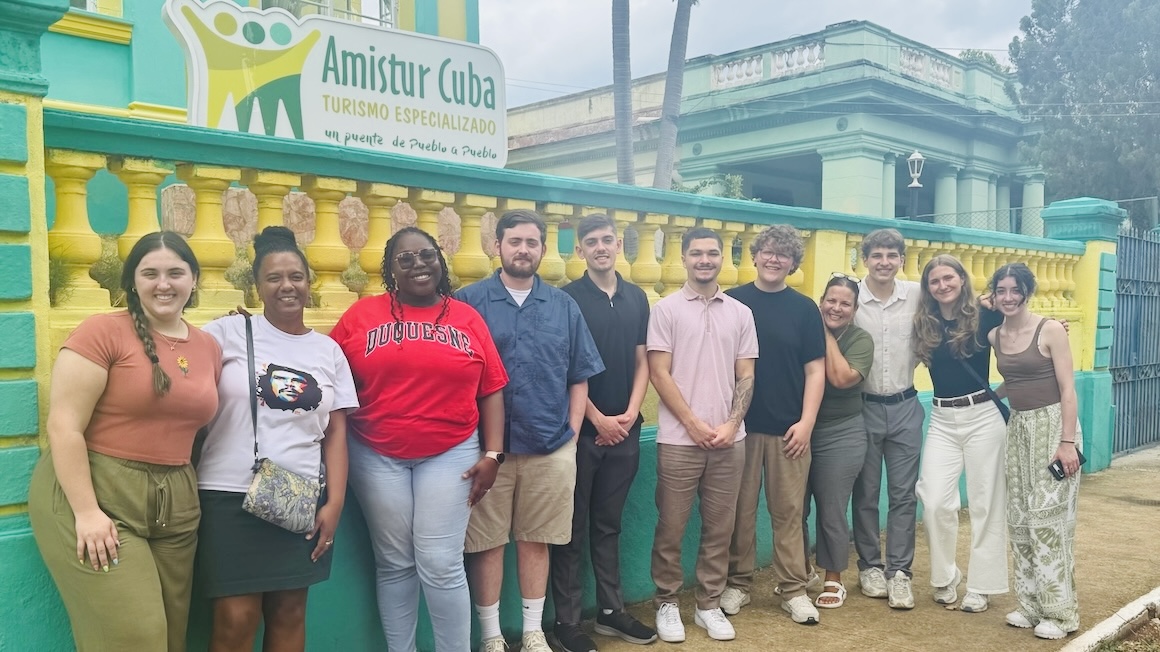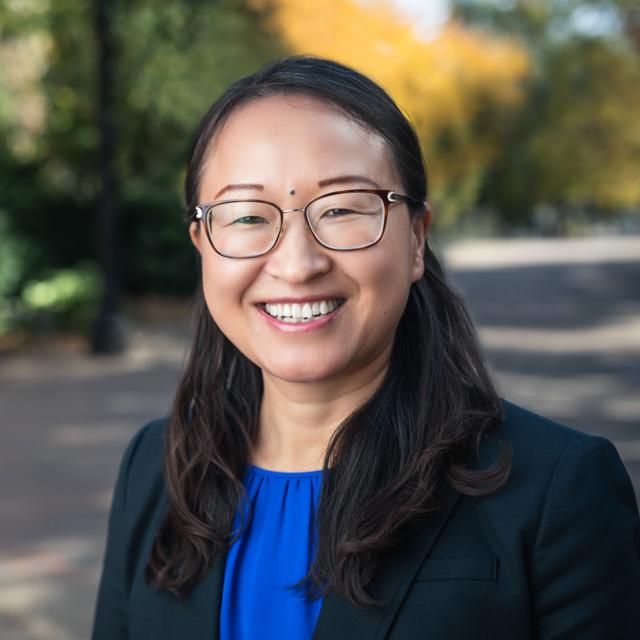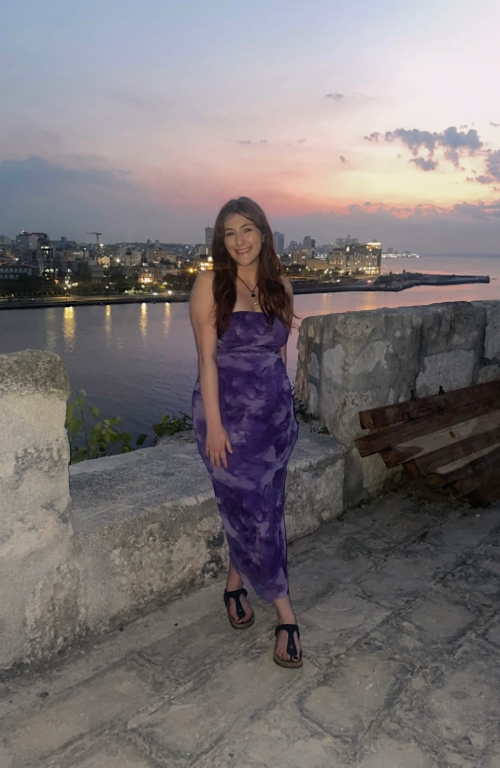Learning and Research Opportunities
The Center for African Studies offers research and study abroad opportunities. For any inquiries regarding this, contact the Center for more information.
The Loogman Summer Grant 2025 Winner
Title: “Africatown in Guangzhou as a Geosemiotic Assemblage: Grassroots Language, Materiality, and the (Re)making of Africanness
Abstract: Public spaces such as “Chinatown” and “Little Italy” have been extensively studied as transnational phenomena in fields like migration studies, human geography, linguistics, and sociology. However, to date, there has been surprisingly little research on the rise of the African diaspora driven by globalization (Mohan & Zack-Williams, 2002; Portes, Guarnizo, & Landolt, 1999), even fewer empirical studies with African migrants in globalizing cities within non-English-speaking developing countries, such as Africatown in Guangzhou, China. My 2024-2025 ethnographic study examines the interactions between African migrants’ (re)making of Africanness and their multilingual, spatial, and transnational practices within their material surroundings. It focuses on multilingual and material signs, objects, and other semiotic resources of Africatown in the post-COVID era—specifically after China lifted its zero-COVID restrictions on December 3rd, 2022. My research project (Protocol #2021/01/8) obtained approval from the University’s IRB and verified on 2/17/2021, with no expiration date. My new book project will address three interrelated research questions: a) how are materials, such as street signs, displayed with a combination of languages, images, and objects after COVID-19? b) how do these materials evoke African migrants’ sense of place and transnational Africanness? and c) how has the COVID-19 pandemic influence African migrants’ perceptions on globalization and transnational identity?
Global Learning
Scholar in Residence
The Center for African Studies hosts a Visiting Scholar in Residence during the fall semesters to give our students a chance to explore global issues from a fresh perspective. They’ll learn about Africa’s unique culture, global politics, economics, health, and environmental issues., while gaining valuable insights that enhance their studies.
Visiting Scholar Process
Founded in 1878 by the Congregation of the Holy Spirit, Duquesne University places a premium on vibrant and high-caliber scholarly research. This commitment is enhanced when scholars engage with one another from various disciplinary, cultural, social and ideological perspectives. Such engagement serves to benefit both the scholar, who is able to access the many resources available on campus, and the University community, which comes to share in the scholar's insights.
Duquesne's Center for African Studies offers the opportunity for such engagement through its Scholar-in-Residence program. The goals of the program are (i) to support scholars in African Studies as they pursue new or ongoing research projects that result in presentations or publications, and (ii) to encourage scholars to contribute fresh and innovative perspectives that maintain the intellectual vitality of the Center and the University.
This program is primarily intended for scholars who already have funding from their home institutions (e.g., in the form of a sabbatical leave), a foundation, or a government, and who seek supplemental funding and academic institutional support to fulfill their scholarly agenda. The program particularly seeks to support faculty members as they work to complete research projects for publication.
Eligibility
The Scholar-in-Residence program is open to scholars who hold terminal degrees in any discipline. The research proposed must be in the field of African Studies, broadly understood. Scholars from, and research on, sub-Saharan Africa may be given priority.
Term
Scholars may be supported for either one or two semesters.
Benefits and Responsibilities
Scholars are provided with a computer and office space in the Center for African Studies, in an academic department appropriate to their research project, or in the library. They enjoy full access to the scholarly resources of the University community. Scholars agree to give at least one public lecture during their time on campus and to make themselves available for formal and informal conversation with faculty and students. By prior agreement, scholars may also teach a graduate or advanced undergraduate seminar. Scholars supported for two semesters may be asked to undertake additional responsibilities.
Scholars must acknowledge the support of Duquesne University and its Center for African Studies in any publication or presentation of the research they undertake during the period of the award.
Finances
Scholars receive stipends of $14,000 per semester. Employee benefits are not provided. In addition, scholars may be reimbursed up to $4,000 per semester for relocation and living expenses and up to $3,000 per semester for professional travel and other expenses related to their research projects. Housing on campus at a reduced rate is sometimes available.
Visa Status
- Scholars may be nominated or apply directly. In either case, a complete application must include:
- Scholar-in-Residence Application Form
- Curriculum vitae
- Letter from the applicant (i) describing the proposed research topic, (ii) explaining the nature and significance of the project, (iii) detailing its impact on scholarship in the applicant's field of study, and (iv) offering a detailed plan for completing the research and publishing the results
- Letter of recommendation from a department head, dean or other administrator at the applicant's current institution who is knowledgeable about her/his research
- Names and current contact information for two additional references
- Letter verifying the applicant's primary source of funding for the period in question
Incomplete applications will not be considered.
Applications may be submitted at any time, either in hard copy (to Selection Committee, Center for African Studies, Duquesne University, 600 Forbes Avenue, Pittsburgh, PA 15282, USA) or electronically as a single .pdf file (to africanstudiesFREEDUQUESNE).
Evaluation
Applications will be reviewed by members of the Advisory Board of the Center for African Studies who will evaluate the scholarly merit and feasibility of the research project proposed and its relevance both to the goals of this program and to the Mission of Duquesne University (see http://www.duq.edu/about/mission-and-identity/mission-statement).
Dr. Samuel Tefera Alemu
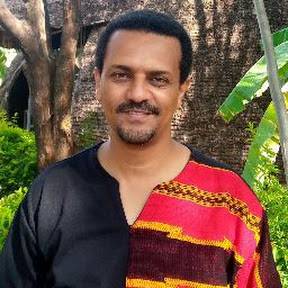
Samuel Tefera Alemu (PhD) is Associate Professor and Asian desk Coordinator at the Center for African and Asian Studies in Addis Ababa University. Samuel served the Ethiopian Ministry of Peace as Policy Advisor to its former Minister and participated in the formulation of different policies and strategies including Ethiopia’s Disaster Risk Management (DRM) policy. He worked with DAI USAID Policy LINK Ethiopia as Resilience Lead, Partnerships for Lowland Areas activity. Prior to that he was Senior DRM Coordinator for the FCDO& USAID funded Building Resilience in Ethiopia Technical Assistance program at Oxford Policy Management. Samuel appears on the Voice of America, Deutsche Welle, Al Jazeera, TRT World and other news platforms in Ethiopia and publicly shares his insights and opinions on Pan-Africanism and regional economic institutions, the Grand Ethiopian Renaissance Dam (GERD), global political trends influencing regional security and peace in the Horn of Africa and Gulf region. Samuel made notable contributions towards raising public knowledge about the GERD negotiations, maritime security in the Red Sea region and Nile Basin Politics. He has also contributed to initiatives and dialogues that contributed to informing Ethiopia’s strategic interest and relevance in the Horn of Africa and the Red Sea-West Indian Ocean maritime space. Samuel is passionate about hydro-geopolitics, humanitarian-peace-development nexus, risk knowledge, policy dialogue, One Health and governance of emerging [cyber] security challenges. Samuel holds BSc in Land Resources Management and Environmental Protection from Mekelle University, MA and PhD in Area Studies from the Graduate School of Asian and African Area Studies at Kyoto University in Japan and various certificates from the United Nations University and United States Institute of Peace. He is currently a visiting scholar at the Center for African Studies at Duquesne University.
Hear From Our Scholars
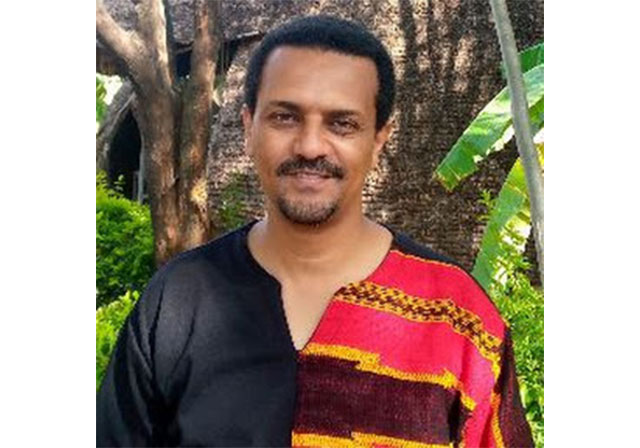
Samuel Tefera, Associate Professor and Asian desk Coordinator at the Center for African and Asian Studies in Addis Ababa University
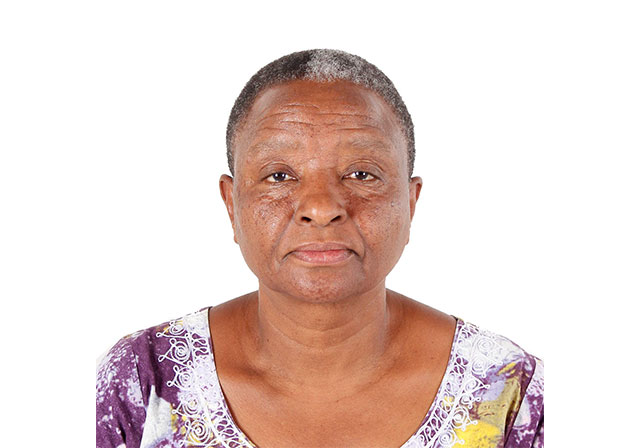
Mary Getui, Professor of Religious Studies at the Catholic University of Eastern Africa.
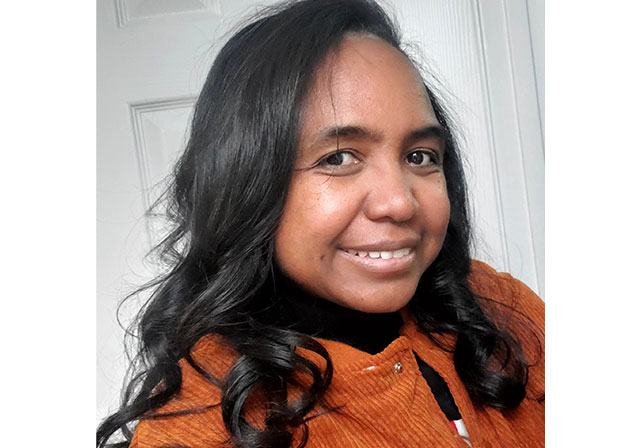
Rijasoa Andriamanana Josoa, Former Minister of Education, Madagascar
Past Speaker Sessions
- Dr. Jack Nyamongo, Country Director, Global Implementation Solutions: Global Health Security in Africa: Experiences in implementing Public Health Events of International Concern in Kenya
- Dr. Xia Chao, Associate Professor, Department of Instruction and Leadership in Education, School of Education, Duquesne University: Africatown in Guangzhou as a Geosemiotic Assemblage: Grassroots Language and Materiality on the Move
- Anna Perkins, Senior Program Officer and Professor of Caribbean Theology and Ethics at University of the West Indies: "Secessionist Maroons who have asserted sovereignty”: Accompong Maroons and the Jamaica State Today
- Anna Perkins, Senior Program Officer and Professor of Caribbean Theology and Ethics at University of the West Indies: The African Diaspora: Significance, Challenge, Opportunity
- Jean-Michel Habineza, Executive Director at iDebate Rwanda & Anthony Wachs, Ph.D., Associate Professor, McAnulty College and Graduate School of Liberal Arts, Communication & Rhetorical Studies, Duquesne University: Building Cultures of Civil Discourse
- Waganesh Zeleke, Ph.D., Associate Professor, School of Education, Duquesne University & Yemataw Wondie Yehualashet, Ph.D., Visiting Scholar in Residence, Center for African Studies, Duquesne University: Understanding Trauma in Context and Culture
- Yemataw Wondie Yehualashet, Visiting Scholar in Residence, Center for African Studies, Duquesne University: Understanding U.S. Africa Relations: An Ethiopian Perspective
- Obiageli "Oby" Katryn Ezekwesili, Ph.D., Senior Economic Adviser, Africa Economic Development Policy Initiative: African Resiliency
- Oyeronke Oyewumi, Professor, Stony Brook University: Decolonizing Knowledge: Re-Centering Africa and African Epistemologies in the Quest for Global Transformation
- Akwasi Opoku-Dakwa, Ph.D., Assistant Professor of Management, Palumbo Donahue School of Business & Yang Chen, Ph.D., Associate Professor, Rangos School of Health Sciences: Exploring Africa-China Relations on Trade and Healthcare
- Honorable Maria Wilson, Judge of the Supreme Court of Trinidad and Tobago: Law & Healing: Lessons From the Rwandan Genocide
- Dr. Jack Nyamongo, Country Director, Global Implementation Solutions: Global Health Security in Africa: Experiences in implementing Public Health Events of International Concern in Kenya
- Abdrakhmanova Zinat, Senior Research Fellow, Ph.D., Al-Farabi Kazakh, National University, Scientific Research Institute of Health, Kazakhstan, Almaty; Aigerim Aliakparova, Doctoral student in Healthcare Ethics, Duquesne University; Aizhan Raushanova, Doctor of Philosophy, Al-Farabi Kazakh National University: Health and Education Systems in Kazakhstan: Opportunities and Challenges
- Dr. Tomás Reinoso Medrano, Professor at National School of Public Health, Havana, Cuba: Cuba's National Health System: Achievements, Dissatisfactions and Challenges
- Dr. Andrew Simpson, Associate Professor of History, Duquesne University: Health and the Humanities: What the Humanities and Liberal Arts Can Offer
- Dr. Jim Withers, Founder, Street Medicine Institute Internal Medicine Teaching, Faculty of UPMC Mercy Hospital, Assistant Clinical Professor of Medicine at the University of Pittsburgh: Go To The People: Street Medicine
- Dr. Tomlin Paul, Dean of Research, Innovation and Quality at the University of Global Health Equity, Rwanda: Tipping the Scale: Social Accountability and Global Health Equity
- Dr. Lisa López Levers, Ph.D., LPCC-S, LPC, CRC, NCC, Professor Emerita, Duquesne University: Indigenous Health Care: What I learned from African Traditional Healers
- Michael Yellow Bird, CMT, MSW, PhD Professor and Dean, Faculty of Social Work, University of Manitoba: A Brief History of Indigenous Health
- Khlood Salman, Dr.PH, RN, FAAN, Associate Professor, School of Nursing, Duquesne University; Sloane Davidson, Founder, CEO, Hello Neighbor; Ivonne Smith-Tapia, Director, JFCS Refugee and Immigrant Services: The Journey of Refugee Women; Addressing Health and Sociocultural Determinants During and After Resettlement
- Dr. Kyle Wilby, Associate Professor, College of Pharmacy, Faculty of Health, Dalhousie University: Beyond Cultural Competency: Applying the Minority Stress Model to Address System-Wide Change for LGBTAQI+ Health
- Bernard Goldstein, M.D., Professor Emeritus, Environmental and Occupational Health, and Former Dean University of Pittsburgh Graduate School of Public Health: Global Health and Climate Change
- Marie Smith-East, Ph.D., Clinical Assistant Professor, School of Nursing, Duquesne University: Global Mental Health and the COVID-19 Pandemic
- Loretta Claiborne, Ph.D., Chief Inspiration Officer, Special Olympics International: I Too Have a Voice, Please Listen to Me!
- Tiffany Gary-Webb, Ph.D., Associate Professor, University of Pittsburgh: Social Determinants of Health for African-Americans: Pre-COVID, During COVID, and Beyond
- Vibhuti Arya, PharmD, MPH, Clinical Professor, St. John's University: Structural Racism and Health Equity
- Shafik Dharamsi, Ph.D., Dean, College of Health Sciences, University of Texas at El Paso: Global Health Education and Engagement: First, Do No Harm


